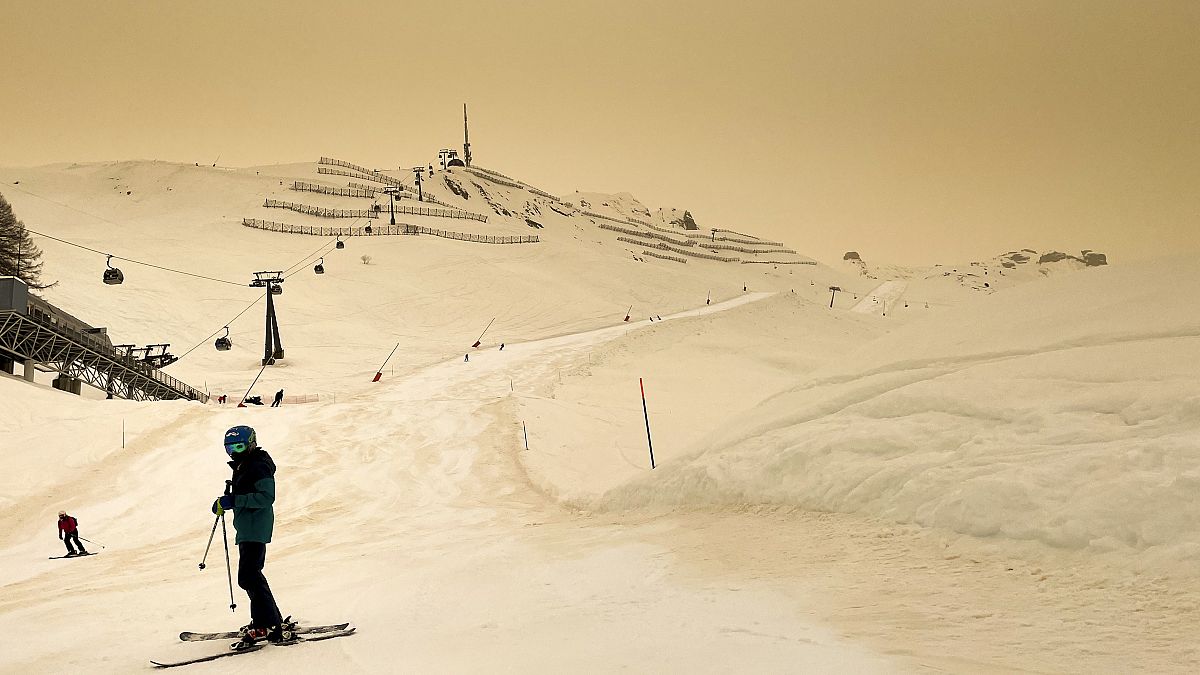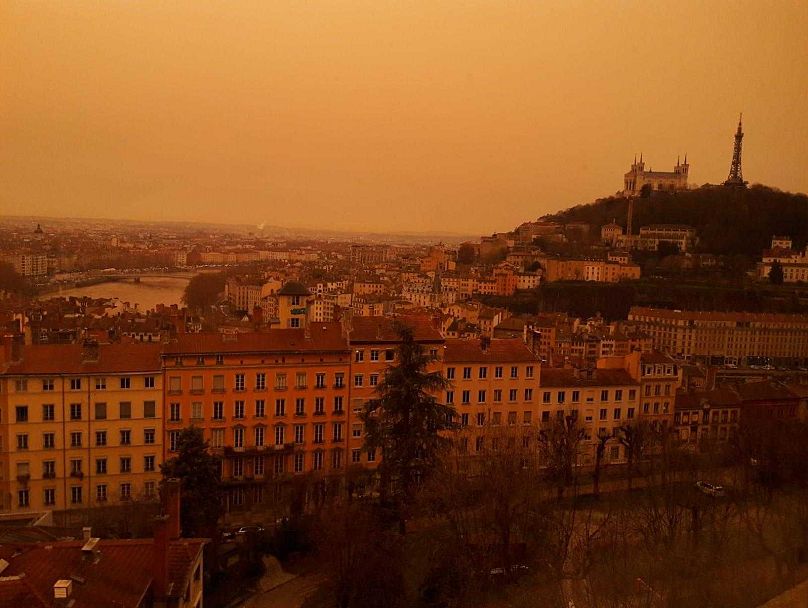The cloud of fine sand blown northward from Algeria tinted skies red and mixed with fresh snowfall in the Alps and Pyrenees, leaving slopes looking orange.
A plume of Sahara dust that has blanketed parts of southern and central Europe in recent days caused a sharp rise in air pollution across the region, researchers said Tuesday.
The European Commission's Copernicus satellite monitoring programme said measured levels of particles smaller than 10 micrometers — so-called PM10s — spiked in cities such as Barcelona, Lyon and Marseille on Sunday.
The cloud of fine sand blown northward from Algeria tinted skies red and mixed with fresh snowfall in the Alps and Pyrenees, leaving slopes looking orange.
These desert dust episodes generally happen later in the year, usually in the Northern Hemisphere's spring, Copernicus explained.
This time around, particles were transported "along a thick plume that stretched the surface up to approximately 5 km above the ground," it added.
It estimated that several micrograms of dust particles per square metres were deposited over much of Europe between February 4 and February 8, "which is a few orders of magnitude larger than the average dust deposit for southern Europe".
But while PM10 particles can enter the lungs, causing breathing difficulties, asthma attacks and other health problems, the concentration of Sahara dust didn't reach levels considered harmful.

